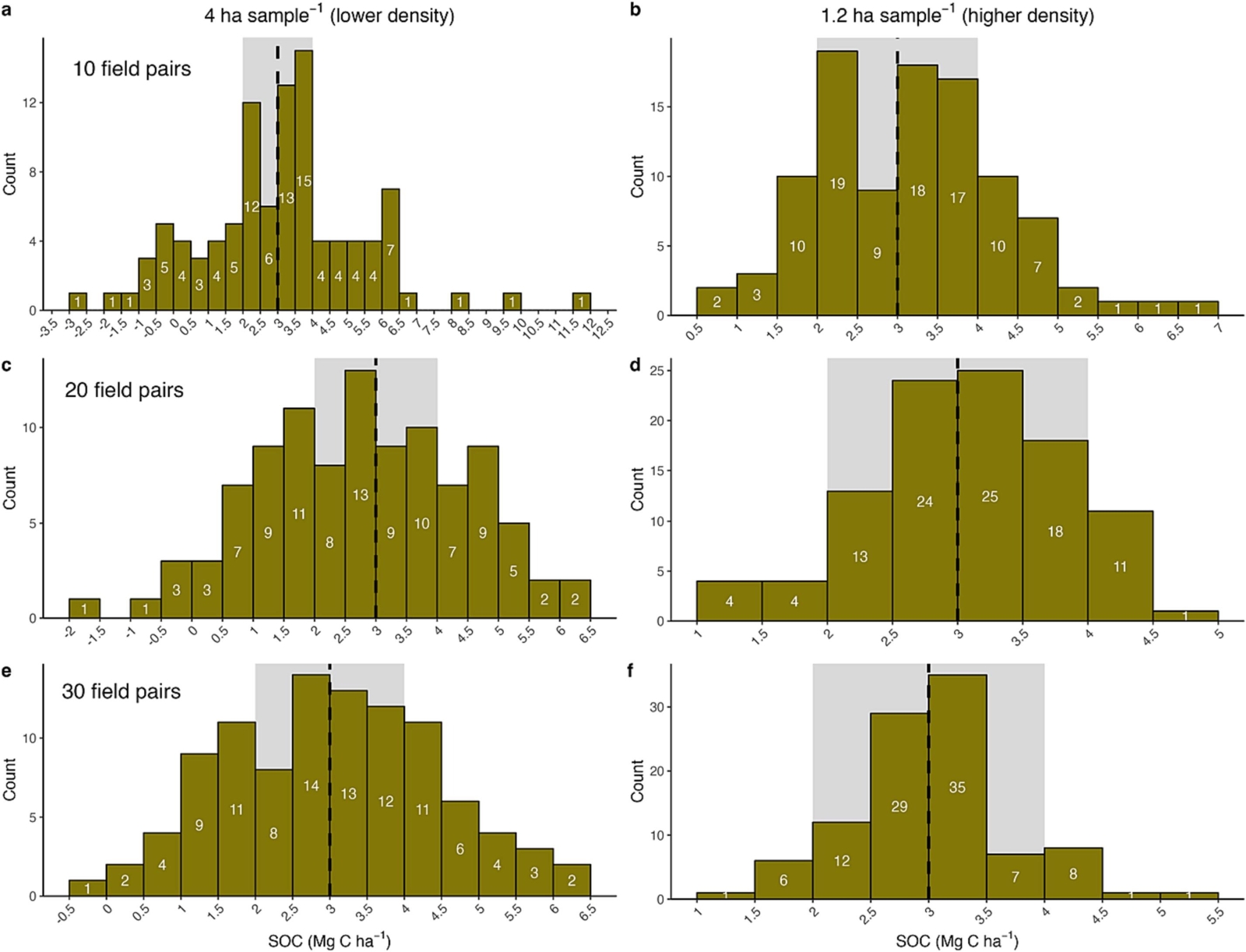December 01, 2023 | Geoderma |
Introduction: Debates about whether regenerative farming can effectively sequester carbon in soil to fight climate change have led Yale Universuity researh team and private sector participants to re-examine the measured soil organic carbon (SOC) changes in 45 cropland sites, as well as re-evaluate field measurement methodologies in terms of precision.
Key findings: Higher-density sampling is shown to minimize variation in estimates of initial SOC stocks, and paired control fields help to increase more accurate estimates of regenerative practice effects on SOC stock change. Larger subsamples of fields and higher sampling densities hold significant potential for accurate project-level estimates of SOC change. The study suggests to adopt best sampling practices and quasi-experimental approaches from various fields, such as medicine, economics, and ecology, in order to improve accuracy of SOC measurements and confidency in estimated SOC accrual effects of regenerative practices.
Additional collaborative efforts is called for to build an evidence base for the effects of regenerative practices on SOC accrual.

Fig. | Monitoring estimates of mean project-level differences (x-axis) between Time2 (re-inventorying) and Time1 (initial inventory) were more accurate and/or robust using more fields and/or higher within-field sampling densities.





